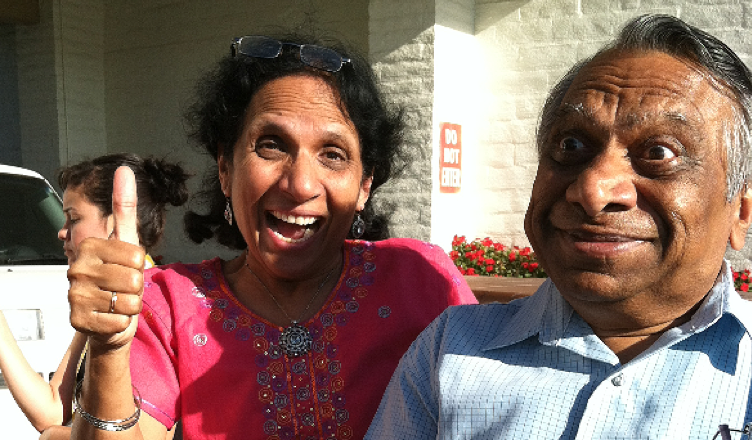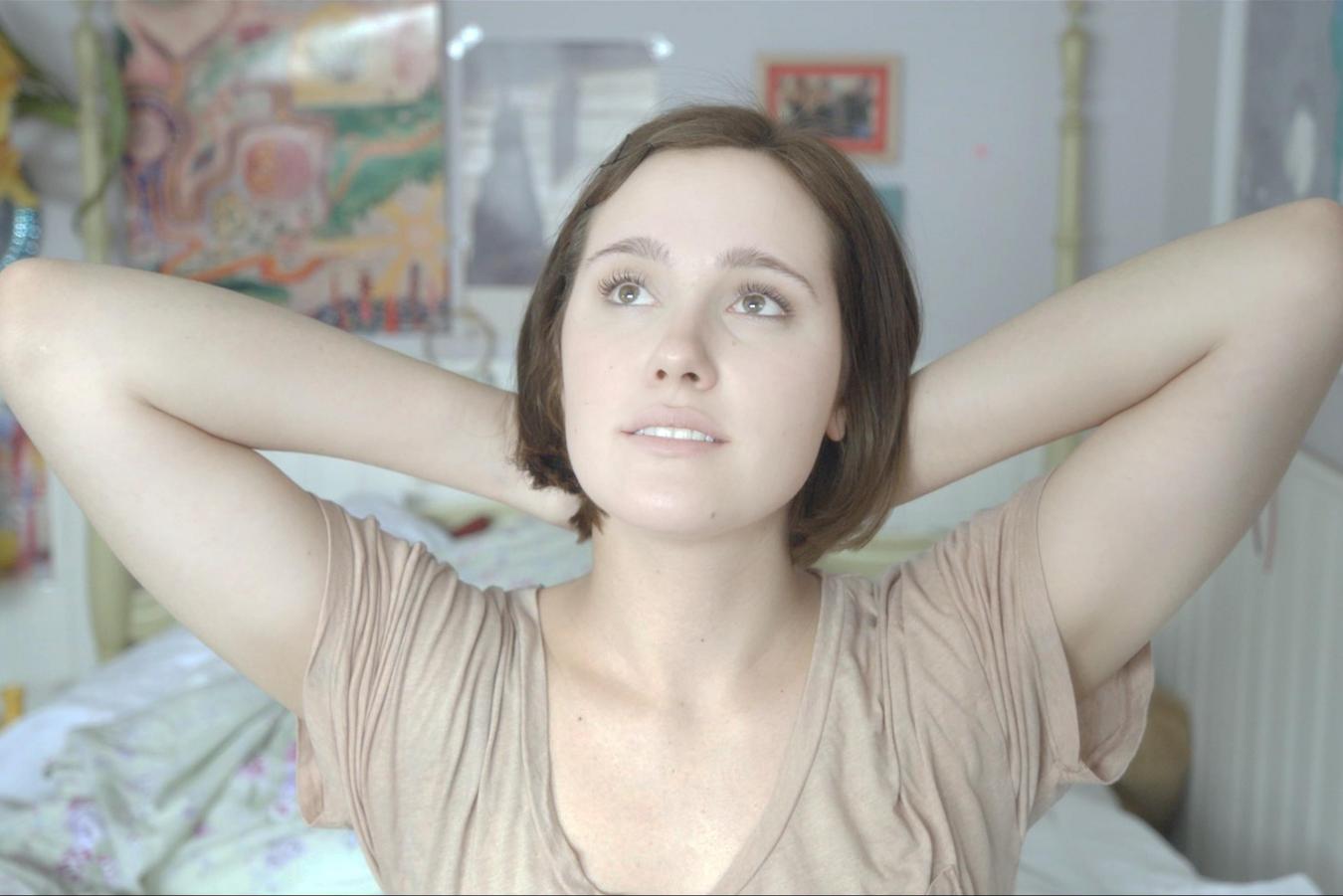
AD
While the brain behind the festival is Davis’ research-based, non-profit advocacy group, the brawn is the corporate behemoth that is Wal-Mart.
READ MORE: Here’s Why Geena Davis Started a Film Festival Focused Not on Women, but Diversity
Also present: A film slate comprised of G and PG ratings (and no gay characters); Wal-Mart executives on the programming committees, panels, and the jury; and reps from presenting sponsor Coca-Cola, one of whom closed an opening-night speech with the cheery message, “Drink a Coke and enjoy the movie!”
No one questions the mandate for Davis and her Institute on Gender in Media: She wants gender equality and diversity in Hollywood. Institute research shows some abysmal numbers: In G-rated blockbusters, girl characters are outnumbered by boys 3:1. Behind the camera, only 7% of directors, 13% of writers, and 20% of producers are female.
Festival co-founder Trevor Drinkwater told Indiewire, “The work that the Geena Davis Institute does is compelling many in positions of power to actually take action.” And this is a year-round initiative, with the Institute and the festival planning to promote women and minority filmmakers at colleges nationwide.
 However, while the brain behind the festival is Davis’ research-based, non-profit advocacy group, the brawn is the Bentonville-based, corporate behemoth that is Wal-Mart.
However, while the brain behind the festival is Davis’ research-based, non-profit advocacy group, the brawn is the Bentonville-based, corporate behemoth that is Wal-Mart.
While the festival was not explicitly promoted as such, Bentonville is positioned as a family event, with a focus on inspiring or redemptive stories. (It does stipulate that films “must display women and minorities in a positive light.”) Winning films are guaranteed distribution on Wal-Mart shelves and online through (Wal-Mart-owned) Vudu, or on Lifetime and AMC screens (both sponsors).
“We loved having Wal-Mart and AMC as sponsors,” said Drinkwater. “If we can create a platform that allows films to be seen by a wide audience and make them more commercial, then we’ll be able to effect change.”
Indeed, the festival did shine a light on a number of important films that deserve attention.
“Jack of The Red Hearts,” Janet Grillo’s film about an autistic girl and troubled youth who connects with her, won the Jury Award. The Best Documentary Award went to “In My Father’s House” directed by Ricki Stern and Annie Sundberg; it follows rapper Che ‘Rhymefest’ Smith who reconnects with a father who is now living on the streets on Chicago’s South Side.
READ MORE: Festival Favorite “Meet the Patels” Has Distribution, But Still Needs Help
 “Meet the Patels,” Geeta and Ravi Patel’s comic documentary, won the “Highest Diversity” Award. The Best Ensemble film went to “Big Stone Gap” starring Ashley Judd as small-town “spinster” in a close-knit Appalachian community. The winner of the Spirit Award was the documentary, “A Brave Heart: The Lizzie Velasquez Story,” about a woman with a rare syndrome who was once called The World’s Ugliest Woman on YouTube.
“Meet the Patels,” Geeta and Ravi Patel’s comic documentary, won the “Highest Diversity” Award. The Best Ensemble film went to “Big Stone Gap” starring Ashley Judd as small-town “spinster” in a close-knit Appalachian community. The winner of the Spirit Award was the documentary, “A Brave Heart: The Lizzie Velasquez Story,” about a woman with a rare syndrome who was once called The World’s Ugliest Woman on YouTube.
“I am thrilled that ‘The Mask You Live In’ was included in the Bentonville Film Festival, a festival dedicated to challenging the status quo in the entertainment industry,” said director Jennifer Siebel Newsom. She co-founded The Representation Project; her documentary delves into America’s narrow definition of masculinity.
Though corporate support certainly helps bring attention to these projects, sponsorship sometimes undermined the message. The Geena Davis Institute mission includes addressing issues of gender inequalities and stereotyping in entertainment targeting children 11 and under, but the festival’s crowded VIB (Very Important Beauty) Lounge included girls as young as 5 getting manicures and beauty tips while posing in front of placards that urge girls to embrace their inner beauty.
“The messaging was so confusing,” said Emily Best, founder and CEO of the filmmaker crowd-funding platform Seed&Spark. “Don’t talk to me about women’s empowerment the same time as you insist I get a manicure.” Since Best didn’t have a film in competition, she was free to tweet, “I have to drink more to swallow the hypocrisy.”
One female filmmaker who didn’t want to be identified recounted getting an email from the festival advertising a “VIP opportunity! I thought it was a networking event, but it was the VIB lounge.”
A male filmmaker, who also asked to remain anonymous, added, “It feels as though pleasing and embracing the filmmakers and films is a secondary mission to feting Wal-Mart and sponsor VIPs.” Some took umbrage that at the festival’s big events and the awards ceremony, the first 5-10 rows were reserved for sponsors, not filmmakers.
Others came away with a much more positive impression. Katie Cokinos, who brought her film “I Dream Too Much” to the festival said, “I felt catered to and recharged!”
And for all of its deep pockets, Bentonville suffered from some of the technical growing pains that often dog smaller events. As The New York Times noted, Bentonville is a town without a movie theater.
“Now I know what my movie looks like projected onto a sheet,” said one filmmaker. Drinkwater said he has a 10-page list of things to improve for next year.
 Perfection would be nice for a pioneering, high-profile, women-centric film festival, but many attendees felt that the perfect should not be the enemy of the good.
Perfection would be nice for a pioneering, high-profile, women-centric film festival, but many attendees felt that the perfect should not be the enemy of the good.
“As individuals, we often don’t have the ability to influence major corporations,” said cinematographer Meredith Richardson. “Someone like Geena Davis has that Hollywood clout to do so.” Richardson’s movie, “Girl From Gods’ Country,” is about Nell Shipman, part of the forgotten generation of 1920s female silent filmmakers.
“As a female screenwriter who helps makes up the dizzy 13% of us, I felt grateful that someone was putting their money where their mouth was,” said Robyn Butler, an Australian screenwriter and actor who brought her screwball comedy, “Now Add Honey” (starring Portia de Rossi and Lucy Fry) to the festival.
Butler said she understands the desire for a festival that supports women and diversity without overt sponsorship. But, she said, “there isn’t one.”
Yalda Uhls of Common Sense Media acknowledged the reality of the situation. “A lot of executives do want to make movies that can change the world, but they’re also in the business of making money.
Source: Geena Davis’ Film Festival is Great, But How Does Wal-Mar | Indiewire
